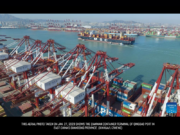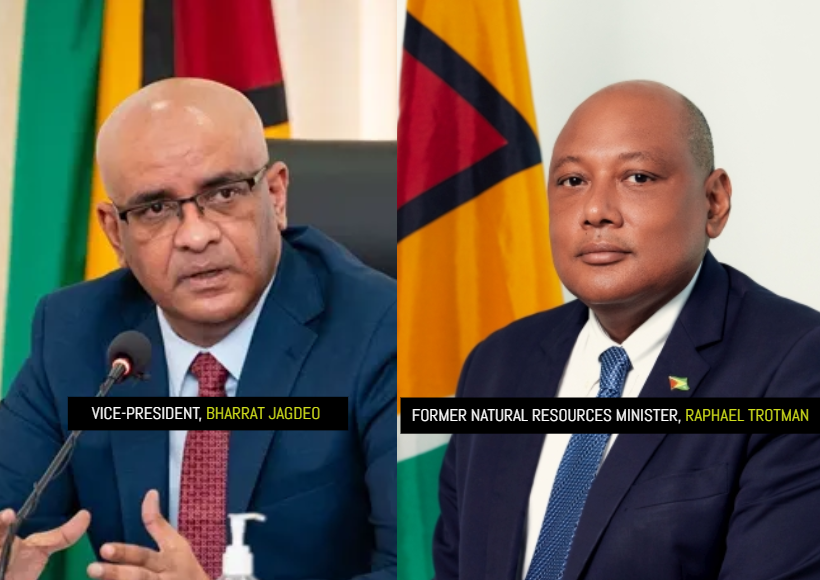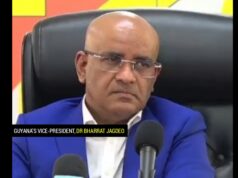Vice President Dr. Bharrat Jagdeo, the key spokesperson for Guyana’s oil and gas industry, has reiterated that the People’s Progressive Party (PPP) government will not entertain any call for the renegotiation of the 2016 Stabroek Block Production Sharing Agreement (PSA). Jagdeo’s comment was in response to former Natural Resources Minister, Raphael Trotman’s call for the renegotiation of the agreement, as outlined in his newly released book titled ‘From Destiny to Prosperity.’
While Trotman is now pledging his support for a renegotiation, indicating that the PSA was lopsided, Jagdeo emphasized that the agreement has already been established and must be honoured. He acknowledged that certain provisions of the contract may appear more favourable to ExxonMobil and other shareholders in the Stabroek Block, however, the PPP government’s approach has been to seek alternative measures to maximize benefits for Guyana, rather than reopening negotiations. Measures such as the implementation of the 2021 Local Content Act and the Wales gas-to-energy project have been introduced to address concerns and secure greater advantages for the country, he said.
Jagdeo also emphasized the government’s unwavering stance, firmly asserting that there will be no deviation from the existing agreement. He also highlighted the irony of Trotman’s call for renegotiation, considering that Trotman himself had signed the contract in 2016, even claiming it to be an improvement over the initial 1999 PSA.
Moreover, Jagdeo criticized Trotman’s prolonged silence on the matter and lamented the missed opportunity during the coalition administration, under which Trotman served as a minister. He highlighted that in 2016, Exxon already held significant oil reserves, yet the APNU+AFC coalition government failed to leverage this advantage effectively during contract negotiations. As a result, Guyana was left with a flawed agreement that must still be honored.
Under the agreement Trotman signed, all taxes on oil companies are waived, Guyana receives a 2% royalty on its resources, and the companies are allowed to recover 75% of their investments before sharing the remaining 25% which is known as profit oil, with Guyana receiving 12.5%.
Jagdeo has referred to Trotman’s book as “a wishy-washy justification for ineptitude” but indicated that he would still read it to gain insights.













